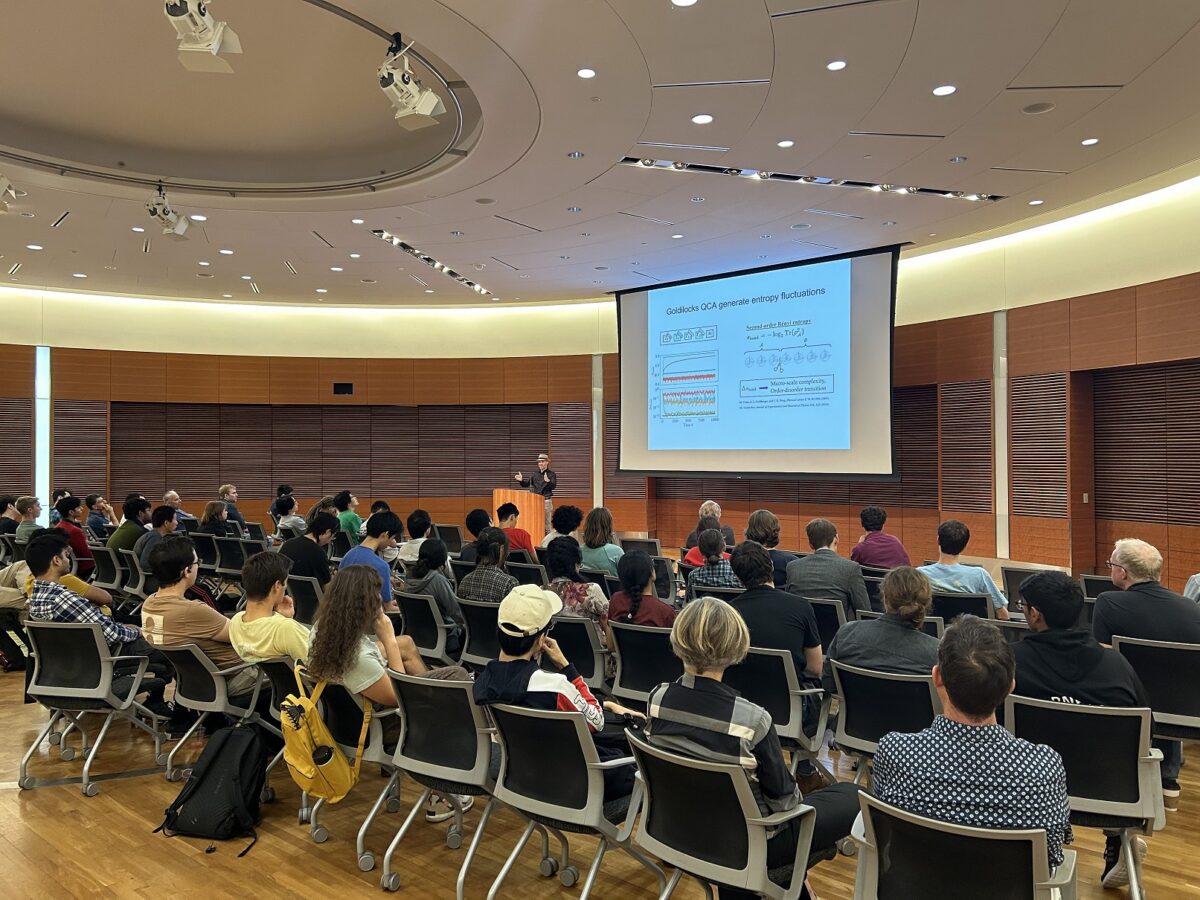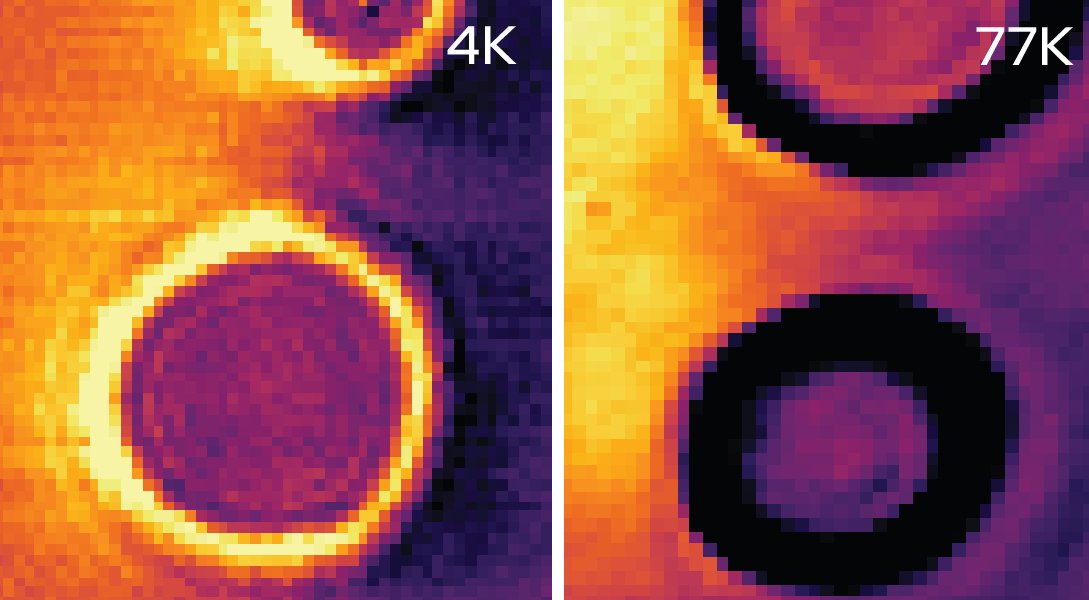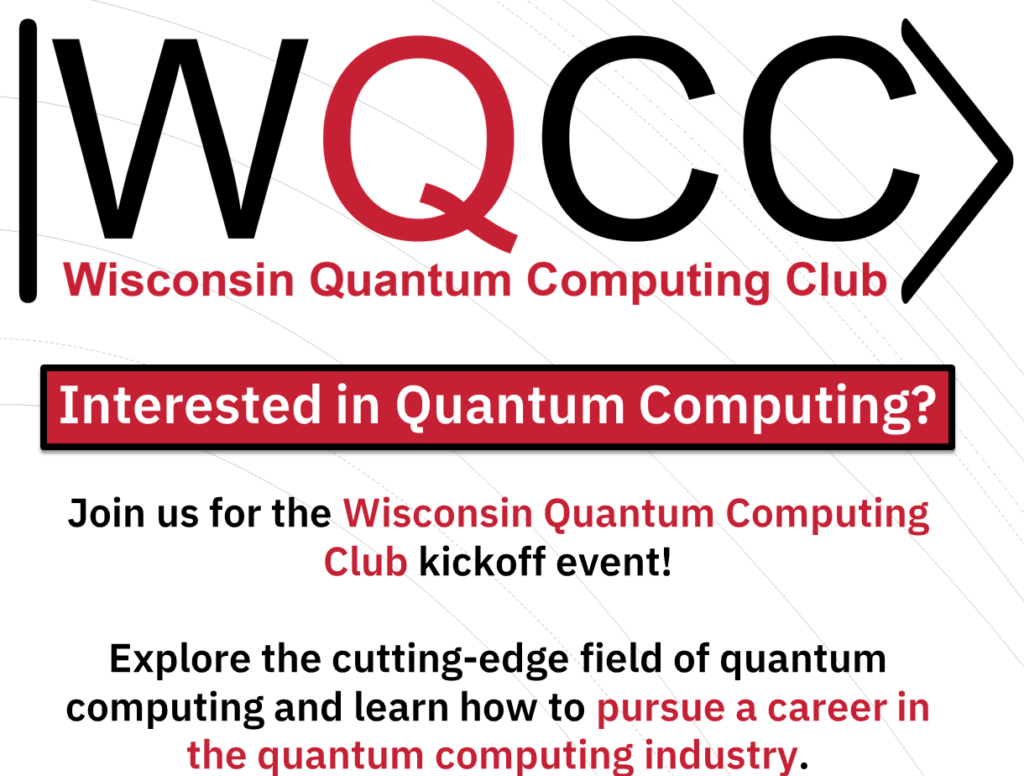Welcome to UW-Madison’s first-ever Qiskit Fall Fest in partnership with IBM Quantum! Embark on an exhilarating journey into quantum computing with us at the Qiskit Fall Fest! Whether you’re already a quantum wizard or just starting to explore this cutting-edge field, you’re in for an incredible learning experience. Get ready for a creative lineup of…
Read the full article at: https://wqi.wisc.edu/wqcc/qiskit-fall-fest-2023/WQI News
The first-ever WQI seminar took place on September 21!

We kicked off our first-ever WQI seminar last week hosting Lincoln Carr from the Colorado School of Mines!
The seminar series shares new ideas in QISE with an audience that is looking to advance their understanding of these concepts.
We look forward to welcoming our guests every month and the continued engagement of our faculty and students!
Choy leads team awarded National Science Foundation Quantum Sensing Challenge Grant
The National Science Foundation has selected a proposal “Compact and robust quantum atomic sensors for timekeeping and inertial sensing” by an interdisciplinary team led by University of Wisconsin-Madison researchers for...
Read the full article at: https://engineering.wisc.edu/blog/choy-leads-team-awarded-national-science-foundation-quantum-sensing-challenge-grant/Jennifer Choy: A quantum community fueled by multidisciplinary collaboration
Prof. Choy is featured in the CQE article: The Rising Leaders of the Quantum Prairie
Read the full article at: https://chicagoquantum.org/news/rising-leaders-quantum-prairieError Rate Reduced for Scalable Quantum Technology
Partnerships bring together UW–Madison quantum computing research, industry leaders
UW–Madison students will conduct hands-on research in partnership with industry, advancing research in the field while gaining real-world experience.
Read the full article at: https://news.wisc.edu/partnerships-bring-together-uw-madison-quantum-computing-research-industry-leaders/Prof. Soley receives ACS Kavli Emerging Leader Award
Congratulations to Micheline Soley for receiving the American Chemical Society Kavli Emerging Leader Award!
The Kavli Foundation Lecture Series recognizes groundbreaking discoveries by scientists tackling many of the world’s mounting challenges; and in particular, the Emerging Leader Award is for distinguished younger scientist who is highly regarded by their peers for significant contributions to an area of chemistry and multidisciplinary areas of chemistry. The award is a keynote lecture and the only Kavli young investigator talk at the American Chemical Society meeting.
Smooth sailing for electrons in graphene

Physicists at the University of Wisconsin–Madison directly measured, for the first time at nanometer resolution, the fluid-like flow of electrons in graphene. The results, which will appear in the journal Science on Feb. 17, have applications in developing new, low-resistance materials, where electrical transport would be more efficient.
Graphene, an atom-thick sheet of carbon arranged in a honeycomb pattern, is an especially pure electrical conductor, making it an ideal material to study electron flow with very low resistance. Here, researchers intentionally added impurities at known distances and found that electron flow changes from gas-like to fluid-like as temperatures rise.
“All conductive materials contain impurities and imperfections that block electron flow, which causes resistance. Historically, people have taken a low-resolution approach to identifying where resistance comes from,” says Zach Krebs, a physics graduate student at UW–Madison and co-lead author of the study. “In this study, we image how charge flows around an impurity and actually see how that impurity blocks current and causes resistance, which is something that hasn’t been done before to distinguish gas-like and fluid-like electron flow.”
Women in STEM: In Conversation with Assistant Professor Jennifer Choy
WQI’s Jen Choy was featured in an AZoQuantum feature for International Day of Women and Girls in Science. Read the piece here.
Announcing the Wisconsin Quantum Computing Club (WQCC)!
The Wisconsin Quantum Computing Club has just formed! Anyone interested should fill this form out.
The first meeting is on Thursday, February 9th from 7:00pm to 8:00pm, in the CS Building, Room 1221.
